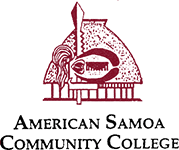American Samoa Community College MOODLE
15 Week Session
This course investigates exceptionalities as defined according to federal educational guidelines, including visual impairment, hearing impairment, learning special needs, intellectual disability, physically and health impaired, behaviorally disordered, communication disorders, and gifted. This introductory course will familiarize students with various categories of special needs. This course is a prerequisite for other special education courses and serves to prepare elementary and early childhood majors who serve children with special needs in their classrooms. (Note: 3 lecture credits)
- Teacher: Moresa Langkilde
This course is designed to introduce student to a research-based theoretical framework for the schooling of language minority students. In addition, this course will examine the underpinnings of primary language development, second language acquisition, and the relationship of both to normal school achievement. The course will explore instructional methods and techniques recommended for language minority students. (Note: 3 lecture credits)
- Teacher: Lance Glodowski
- Teacher: Moresa Langkilde
This course offers a thorough study of the ASDOE K-12 Samoan Language curriculum, emphasizing mastery of sequencing of levels and scope. It will help students use the whole language approach to plan, implement and assess/evaluate the teaching of Samoa Language in their classrooms. It reviews the theories of language acquisition introduced in other teacher education courses. (Note: 3 lecture credits; Students are required to take both lecture and practicum during the same semester)
- Teacher: Katerina Ameperosa
This course will provide students the opportunity to be observed by mentor teachers with years of professional teaching experience. Students will meet with their mentor teacher/college instructor to discuss feedback and implement recommendations for the classroom. (Note: 1 credit practicum; Students are required to take both lecture and practicum during the same semester)
- Teacher: Katerina Ameperosa
